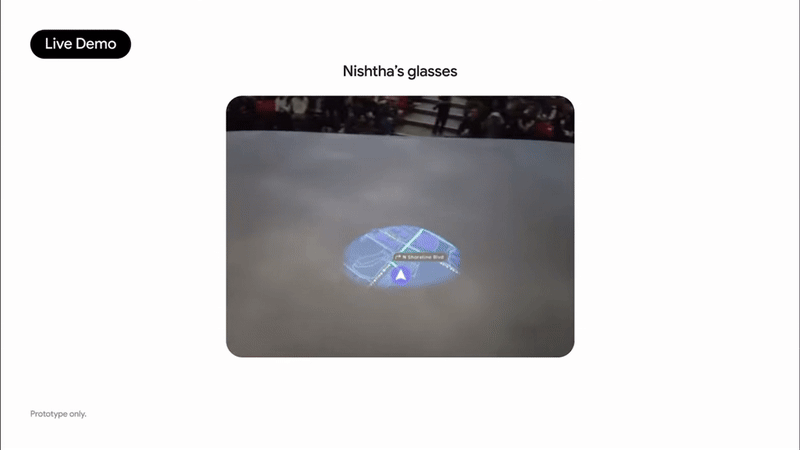While Samsung is already deep into development of its Android XR-powered Apple Vision Pro rival, Project Moohan (freshly confirmed to be launching later this year), Google I/O 2025 played host to news that the South Korean tech giant is now also responsible for Google’s first pair of Android XR-powered smart glasses.
The opening keynote at this year’s rendition of Google’s annual developer conference centred around the company’s Gemini AI platform, with the promise of more personalised context across first-party apps, tailored agentic abilities, advancements to its Imagen and Veo AI-based image and video generation tools, and more.
But as the presentation drew to a close, the company’s Shahram Izadi stepped out on stage to give us an update on Android XR (XR meaning extended reality).
The company’s mixed reality platform was already confirmed to be a collaboration with Samsung and Qualcomm, but until now, the only physical manifestation of that partnership ever shown off has been Project Moohan.
After an update on Moohan, Izadi then moved onto smart glasses, detailing Google’s approach to such hardware: “a camera and microphones give Gemini the ability to see and hear the world, speakers let you listen to the AI, play music or take calls, and an optional in-lens display privately shows you helpful information, just when you need it”.

After a (somewhat bumpy) multimodal live demo – which included video streaming, music playback, recall, navigation (see above), search and translation – it was then confirmed that Samsung has been made responsible for the Android XR smart glasses reference hardware, as an extension of its collaboration with Google.
Samsung’s developmental smart glasses are reportedly already in the hands (or on the faces) of “trusted testers”, with developers promised access to development tools for the platform later into 2025.
Timing and principles
As exciting as the promise of Android XR-powered smart glasses is, they already have stiff competition to square off against, primarily from Meta.
The rival company’s own efforts with AI and its ongoing collaboration with EssilorLuxottica have already given rise to what are the most prevalent and high-profile smart glasses already on the market, in the form of the Meta Ray-Bans, with the promise of new styles of shades from sister brand Oakley in the near future too.
Meta’s glasses already do much of what Google’s glasses promise, however, they’re built on a wildly different and arguably shakier foundation.

Google’s long-standing suite of search, productivity and lifestyle-focused apps and services has allowed the company to build what’s likely a far clearer, and more complete and personal picture of its users, which is only going to better serve the experience offered up by Android XR-powered smart glasses, when they do eventually launch.
That ‘when’ is the silver lining for Meta, as it stands.
Although Google likely has the makings of a more personal and versatile smart glasses product, with a date still not set for developers to be able to even begin developing for the platform, it stands to reason that retail-ready hardware is still a long way off, perhaps as far as Google I/O 2026. Google has also established consumer partnerships with Gentle Monster and Warby Parker.
Meanwhile, new, more advanced variants of Meta Ray-Bans (codenamed Aperol and Bellini) that would narrow any potential gap Google might have just created are expected much sooner, rather than later.
More coverage from Google I/O








